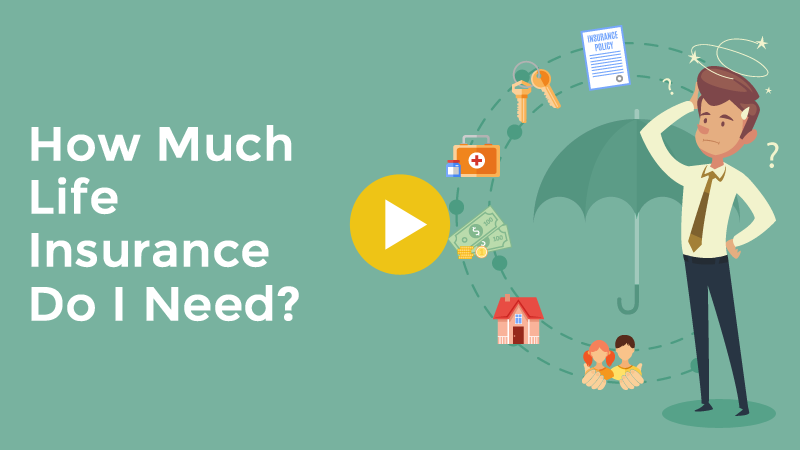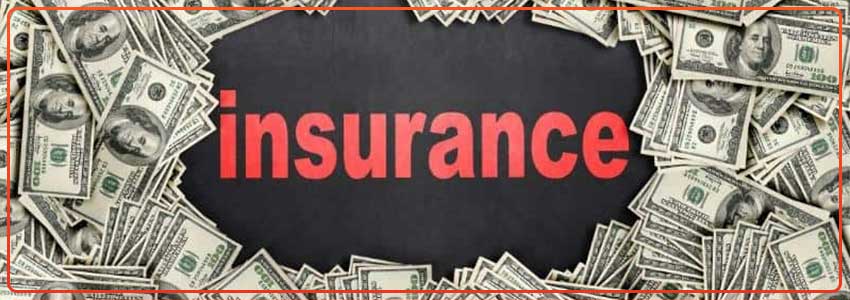There are actually many costs associated with skipping out on insurance coverage. Perhaps the most obvious cost is the financial burden that you will have to bear if you become sick or injured and need medical care.
If you don’t have insurance, you will be responsible for paying all of your medical bills out of pocket. This can quickly become very expensive, especially if you need extensive treatments or surgery. In some cases, the cost of medical care can even lead to bankruptcy.
Furthermore, avoiding health insurance also means that you will have to pay the full price for all of your prescriptions. If you have a chronic condition that requires costly medication, this can add up to a significant amount of money over time.
In addition, not having health insurance can also affect your future prospects. For example, if you develop a serious health condition, you may not be able to get a life or disability insurance in the future.
This can make it difficult to protect yourself and your family financially in the event of an unexpected illness or injury. As you can see, there are several important costs to consider before deciding whether or not to purchase health insurance.
What is an insurance policy and what does it cover?
An insurance policy is a contract between an insurer and a policyholder. The contract stipulates that the insurer will provide financial protection against losses incurred by the policyholder in exchange for regular payments called premiums.
The terms of the contract are outlined in the policy document, which spells out what is and is not covered by the policy. In general, insurance policies cover accidental losses, such as those caused by fires, car accidents, or burglaries.
Policies may also provide coverage for certain types of legal liability, such as injuries sustained by others on your property. Ultimately, the specific coverage provided by an insurance policy will depend on the type of policy and the insurer.
Why do you need insurance coverage and how much should you have?

Everyone needs insurance for different reasons. You may need it to protect your family, your home, or your business. The amount of coverage you need depends on many factors, including the assets you want to protect and the level of risk you are comfortable with.
For example, a young family may want to purchase more life insurance than a single person with no dependents. A homeowner may want to purchase more coverage than a renter.
Ultimately, the best way to determine how much insurance you need is to speak with an agent who can help you assess your risks and make recommendations based on your unique situation.
How can you find the best insurance policy for your needs and budget?
There’s no one-size-fits-all answer to this question, as the best insurance policy for your needs and budget will depend on a variety of factors. However, there are a few steps you can take to help narrow down your options and find the best policy for your situation.
First, consider what type of coverage you need. For example, if you own a home, you’ll need a different policy than someone who doesn’t. Next, get quotes from multiple insurers and compare their rates.
Be sure to also read the fine print and compare the coverage limits and deductibles before making your final decision. By taking these steps, you’ll be better equipped to find the best insurance policy for your needs and budget.
What are the different types of policies available to you, and which one is right for you?
There are a variety of insurance policies available on the market, and choosing the right one can be tricky. However, it’s important to make sure you’re adequately covered in case of an emergency.
The most common types of insurance are health, life, auto, and homeowners. Health insurance covers medical bills in case you get sick or injured. Life insurance pays out a death benefit to your beneficiaries in the event of your death.
Auto insurance covers repairs or replacement if your car is damaged in an accident. Homeowners insurance protects your home and possessions in case of damages caused by fire, theft, or weather events.
When deciding which policy is right for you, it’s important to consider your needs and budget. You may also want to consult with an insurance agent to find the best coverage for your situation.
How often should you review your insurance policy and make changes as needed?
While it’s important to have insurance coverage that meets your needs, it’s also important to review your policy regularly and make sure that it still meets your needs.
Life circumstances can change quickly, and your insurance policy should reflect those changes. For example, if you get married or have a baby, you’ll need to make sure that your life insurance coverage is enough to support your family in the event of your death.
Or if you buy a new car, you’ll need to make sure that you have adequate coverage in case of an accident. Reviewing your insurance policy at least once a year ensures that you’re not paying for more coverage than you need and that you’re adequately protected in the event of an accident or other unforeseen event.
What happens if you don’t have insurance coverage and something happens to your home or belongings?
Many people believe that insurance is a waste of money – why pay for something you may never use? However, the peace of mind that comes with knowing you are covered in case of an emergency is worth the cost of monthly premiums.
What happens if you don’t have insurance coverage and something happens to your home or belongings? If your home is damaged in a fire or natural disaster, you will be responsible for paying for repairs out of pocket. And if your belongings are stolen or damaged, you will have to replace them on your own.
In some cases, people have had to declare bankruptcy after being hit with large unexpected expenses. So while it may seem like an unnecessary expense, having insurance coverage can save you a lot of money in the long run.
Legit Questions To Ask About Insurance

What Is One Cost Of Avoiding Insurance #1- What are the different types of insurance policies available, and which one is right for me?
There are many different types of insurance policies available, and choosing the right one can be tricky. Some common types of insurance include life, health, auto, and homeowners insurance.
Each type of policy has its own unique benefits and coverage options. For example, life insurance can provide financial security for your family in the event of your death. Health insurance can help to cover the cost of medical care, while auto insurance can protect you from the financial burden of an accident.
Homeowners insurance can safeguard your home and belongings in the case of fire or other damage. When deciding which type of policy is right for you, it is important to consider your needs and budget.
Once you have a clear understanding of your needs, you can compare policies and find the one that best meets your requirements.
What Is One Cost Of Avoiding Insurance #2- How Much Coverage Do I Need?
When it comes to insurance, there’s no one-size-fits-all answer. The amount of coverage you need depends on a variety of factors, including your assets, your lifestyle, and your family’s needs.
For example, if you own a home, you’ll need enough coverage to replace it in the event of a disaster. If you have young children, you’ll need to make sure they’re taken care of if something happens to you. And if you have expensive possessions, like jewelry or art, you’ll need to insure them for their full value.
The best way to determine how much coverage you need is to speak with an insurance agent who can help you assess your risks and develop a policy that meets your needs.
What Is One Cost Of Avoiding Insurance #3- What is The Deductible?
The term “deductible” refers to the amount of money that you are responsible for paying out-of-pocket before your insurance company will start paying for covered expenses. In other words, your deductible is the portion of your medical bills that you will have to pay yourself. For example, let’s say that you have a $500 deductible. This means that you will have to pay the first $500 of any covered medical expenses yourself.
After you have paid $500 out-of-pocket, your insurance company will start paying for covered expenses. Deductibles can vary widely, so it’s important to choose an insurance plan with a deductible that you can afford.
What Is One Cost Of Avoiding Insurance #4- What are the exclusions?
Exclusions are the items or services that are not covered by an insurance policy. Every policy is different, so it’s important to read your policy docs carefully to see what is and isn’t excluded.
Some common exclusions include pre-existing conditions, experimental treatments, cosmetic surgery, and self-inflicted injuries. It’s also important to note that most policies have a maximum benefit limit, which is the most that the insurer will pay out for a covered claim.
Once you reach this limit, you’ll be responsible for paying any additional costs yourself. Exclusions can seem confusing at first, but your insurance company will be happy to answer any questions you have about what is and isn’t covered under your policy.
What Is One Cost Of Avoiding Insurance #5- Is there a waiting period?
According to the National Rifle Association, there is no federal law mandating a waiting period for firearm purchases. However, some states have enacted waiting periods as a way to prevent gun violence.
The thinking behind these laws is that it gives people time to cool off after a breakup or other stressful event, during which they might be tempted to buy a gun in haste and then use it in a crime of passion. Waiting periods also give background check systems time to flag anyone with a history of violence or mental illness.
While waiting periods may not entirely prevent gun violence, supporters argue that they could help to reduce the number of impulsive crimes committed with firearms.
What Is One Cost Of Avoiding Insurance #6- How often should I review my policy?
Reviewing your insurance policy on a regular basis is a good way to make sure that you are still getting the best coverage for your needs. Your insurance needs can change over time, and it’s important to keep your policy up-to-date. For example, if you purchase a new car, you’ll need to update your auto insurance policy.
Or if you get married or have a child, you’ll need to adjust your life insurance coverage. Generally speaking, it’s a good idea to review your insurance policy at least once a year. This will help you to catch any changes that need to be made so that you can be sure that you’re always covered.
What Is One Cost Of Avoiding Insurance #7- Do I need insurance if I don’t own anything of value?
Many people believe that they only need insurance if they own valuable property, such as a home or a car. However, this is not necessarily the case.
While it is true that insurance can help to protect your belongings, it also provides other important benefits.
For example, insurance can help to cover the cost of medical care if you are injured in an accident. It can also provide financial assistance if you are unable to work due to an illness or injury.
In addition, insurance can give you peace of mind by knowing that you and your family will be taken care of financially if something unexpected happens. As you can see, there are many good reasons to have insurance even if you don’t own anything of value.
What Is One Cost Of Avoiding Insurance #8- How much does insurance cost?
Insurance is a safeguard against potential financial losses due to unforeseen events such as accidents, fires, or theft. The cost of insurance premiums is determined by a number of factors, including the type of coverage, the amount of coverage, the deductible, and the insurance company.
In general, the more comprehensive the coverage and the higher the amount of coverage, the higher the premium will be. The deductible is the amount that must be paid out-of-pocket before the insurance company pays any benefits; deductibles can range from a few hundred dollars to several thousand dollars.
Insurance premiums are also affected by the insurance company’s claims history and operating expenses. As a result, it is important to shop around for insurance and compare rates before purchasing a policy.
What Is One Cost Of Avoiding Insurance #9- Is there a way to get discounts on my insurance premiums?
Many people are often surprised to learn that there are a number of ways to get discounts on their insurance premiums. One way to get a discount is to be a safe driver. Most insurance companies offer discounts to drivers who have a clean driving record.
Another way to get a discount is to take advantage of the safety features in your car. Many companies offer discounts for cars with airbags, anti-lock brakes, and other safety features. Finally, you can also get a discount by bundling your insurance policies.
Many companies offer discounts when you have more than one policy with them, such as homeowners and auto insurance. By taking advantage of these discounts, you can save a significant amount of money on your insurance premiums.
Also Read: What is a Christina Piercing Everything You Need to Know



